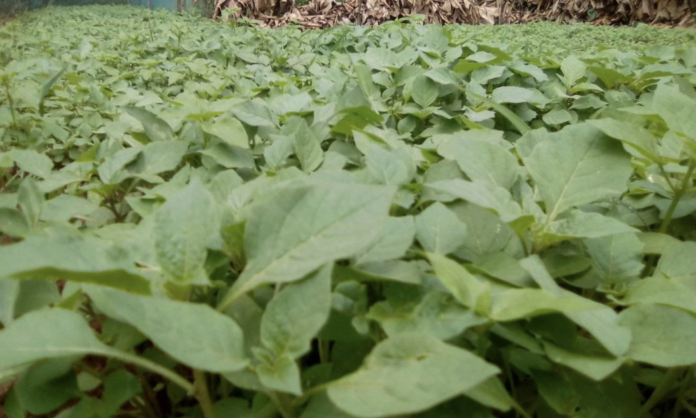Exporting Managu, Sagaa, Mrenda, and Terere Abroad: If you’ve ever had the chance to taste indigenous East African vegetables such as managu, sagaa, mrenda, and terere, then you know just how savoury these dishes can be.
James Shikwati, a small-time Kenyan farmer, is making steady profits from exporting these vegetables to USA and Europe.
It takes more than producing flavorful cuisine; it takes skill and drive—and that’s exactly what James brings to the table. This blog post explores James’ unique approach to turning his farm into an exportation powerhouse.
The Inter-Region Economic Network growth pad limited (IREN) in Shihanda Mumias is a buzz of activities. It’s the brainchild of James Shikwati, an enterprising farmer who has demonstrated consistent success in agricultural exports.
Henry Kinuthia: How Managu Farming Made Me a Millionaire
James stayed in Europe for almost a year, and he literates how much he craved the home food he grew up with:
“I stayed in Europe for one year, and I could feel the yearning for food from home. I know exactly how it feels when someone from abroad feels when they touch food from their country”.
This experience inspired him to come up with a brilliant idea for his business, exporting the food he grew up eating and other traditional East African delicacies to countries worldwide.
James connects with local farmers, purchasing their products in bulk, drying, and packaging them for international distribution. This careful process ensures that his customers get nothing but the best.
Here is the variety of vegetables you’re likely to find on his shelves:
- Amaranth (Tsimboka, Lidondo, Mchicha, Terere, Emboga, Mborochet, Odondo)
- Jute Mallow (Mrenda, omutere, omurere, Apoth)
- Rattle Pod (Mitoo, Emiroo)
- African black night shed (Managu, Lisuza, Osuga)
- Spider plant ( zisaga, chisaga, dek, saget)
- Cowpeas (kunde)
James says African vegetables have the shortest value chain compared to exotic vegetables like carrots, french beans, etc. This means when the farmer produces the vegetables, it’s straight from the farm to the market. This makes it difficult for the farmer to gain more from the produce.
How you can earn Sh. 800,000 from one acre of onions in 4 months
The IREN aims to help small farmers create a longer value chain. James works with the farmers to help them manage their labor and inputs and provide a market for their products.
Regarding sourcing, the organization has networks in over 14 counties in Kenya. “You’ll notice Kakamega county getting sagaa is difficult, but Kisii has lots of sagaa. We’ve created this network of farmers we’ve worked with before in our research and connected them to be our suppliers.”
Processing
Once the vegetables are sourced from farmers, they are weighed, and the farmers are paid per KG. The next step is plucking and removal of leaves and other unwanted materials. The vegetables are weighed again to establish their weight without stocks and foreign materials.
The Managu, Sagaa, Mrenda, and Terere are then washed in hot and cold water, after which they are solar-dried.
The company has employed over 30 women to help with the process. They are skilled labourers and are trained in quality control. IREN uses indigenous technology to ensure they are not adding any chemicals in the process, ensuring that the vegetables are kept as organic as possible.
Avoid these chicken farming mistakes I made if you want to make money
Penetrating the American market is not easy. Americans are used to eating green vegetables and getting them from supermarkets, but James has made it possible. To get there, one has first to meet local standards.
In the two years, IREN has been in operation, it has been able to deliver its products to Europe, the Middle East, and America. But with success comes challenges. According to James, one of the challenges is the limited supply of traditional vegetables.
People have stopped planting these vegetables due to the low returns, so James and his team are now focusing on helping small farmers access better inputs and teaching them how to manage their labor and production.
James is confident that his business model will help improve the food security of East African countries and bring more economic opportunities to local farmers. His dedication to quality and passion for exporting local foods have already made a huge difference in the lives of many.
He hopes this will continue to expand to other African countries so that more people can benefit from his mission.











kindly share contacts for the organization IREN